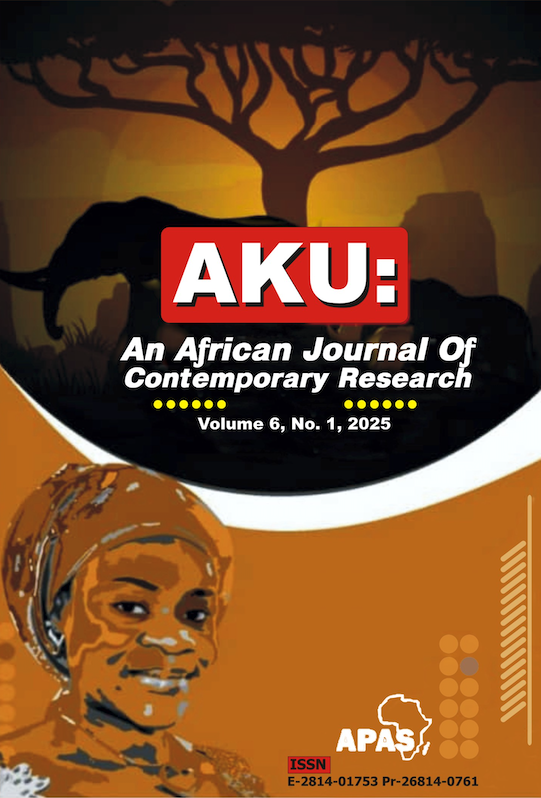MARTIN HEIDEGGER’S PROBLEM OF BEING: IMPLICATIONS FOR AUTHENTIC LIVING IN THE 21ST CENTURY NIGERIAN SOCIETY
Abstract
Abstract The question of being is a controversial concept throughout the history of philosophy. Every philosophical understanding of the concept of being in all epochs is an historical configuration existing in relation to their historical periods. This study establishes that philosophers throughout different periods have tried to give their own interpretation and understanding based on the way they have conceived being. Heidegger, a 20th century existentialist and metaphysician, a philosopher of being, responding to the problem of being develops a largely acceptable interpretation of what he conceives as being. Heidegger begins with Dasein since man is the only being that asks the question of being. Man is the only being in the world that has relations to himself and to other being. Man is essentially a being-with-others. Being is not a fixed or static concept but dynamic and temporal, revealing itself through our everyday experiences and interactions. The basic ontological structure of man's being is in the three basic dimensions of time; the facticity, existentiality and fallenness. Heidegger emphasizes the importance of authenticity, urging individuals to confront the question of their own being and to live in accordance with their true selves rather than conforming to societal norms or expectations. The 21st century Nigeria has witnessed deficiency and negativity projecting inauthenticity and depersonalizing the beingness of man and the other. Against this framework, this study aims to evaluate Heidegger's problem of being for authentic living. Employing the philosophical methods of analysis and evaluation, the study reveals that Heidegger's philosophy of being captures the totality of the beingness of man as he lives, experiences existential realities and the ways he engages with the world through his past, present and future. The study concludes that Heidegger's two dimensions of reality; time and the world, provide 21st Century Nigerian people with a base for authentic living and conscious relation of Dasein with Co-Daseins and other entities.


